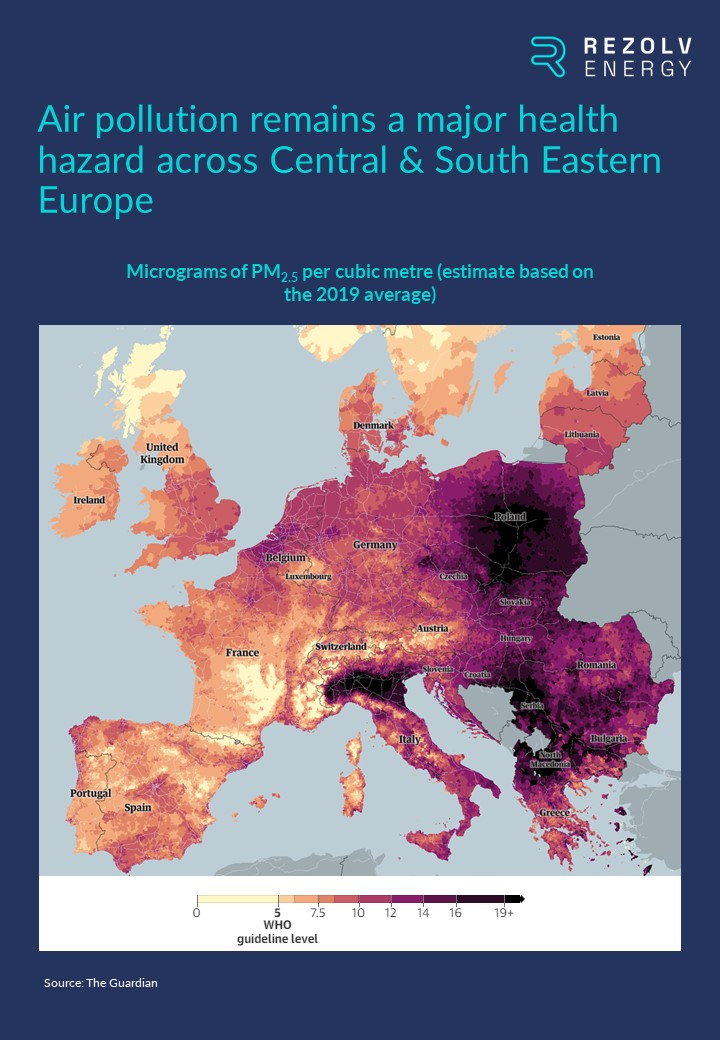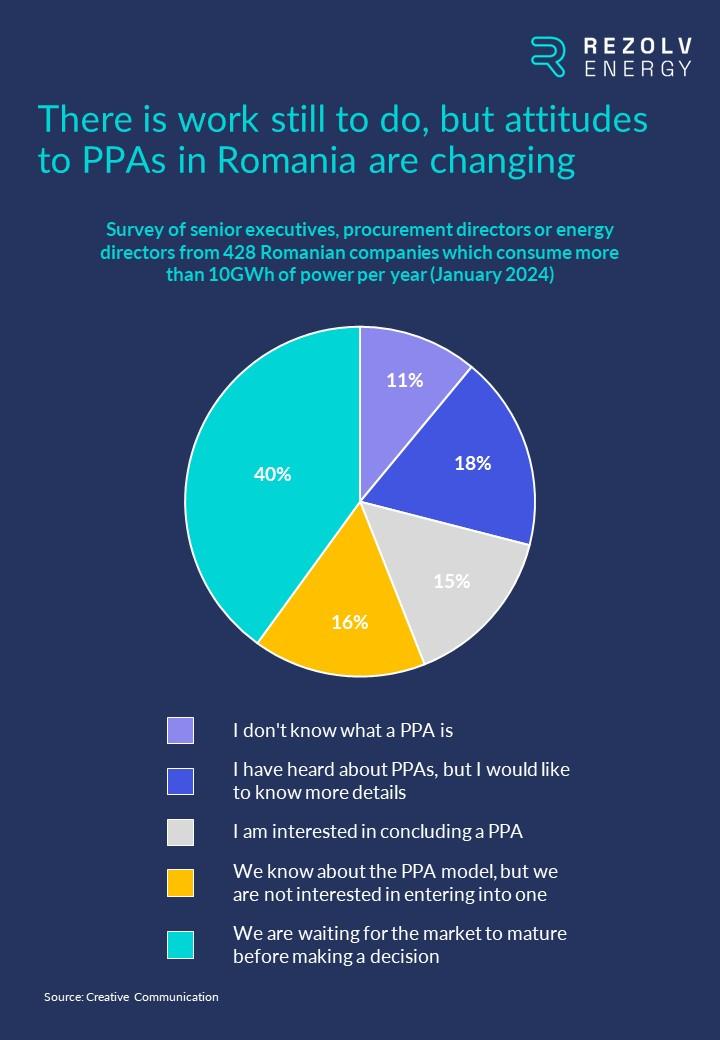by Alastair Hammond, CEO, Rezolv Energy
I have been working in renewable energy in Central and South Eastern Europe for almost 20 years. For much of that time, the ‘pause’ button was pressed on the development of renewables. So for people like me, the era we are living in now is exhilarating.
Right now, Rezolv Energy’s focus is on Romania and Bulgaria. Backed by EUR 500 mln from Actis, one of the world’s most respected investors, we already have over 2 GW of clean energy being prepared for construction through four huge onshore wind and solar projects in those two countries. The power they produce will be sold to commercial and industrial users through Power Purchase Agreements (PPAs), but to give you a sense of the scale, we are talking about enough clean energy to power well over one million homes.
2023: a year of real progress
Across the region, 2023 was the best year for renewable energy in well over a decade. Solar was the big winner. Solar capacity increased by more than 80% in Bulgaria and over 1 GW was installed in Romania, a 300% increase on 2022. We saw similar progress elsewhere in SEE too.
Importantly, both countries seem committed to keeping their foot on the accelerator. The most recent version of Romania’s National Energy and Climate Plan (NECP), submitted in November, proposed a 36% share of renewable energy, short of the EU’s overall objective of 42.5%, but much higher than the 2018 NECP.
Bulgaria seems to be even more ambitious, as the only country in this region to join the group of 11 member states that recently called on the EU to set a 2040 target in line with a 1.5°C temperature goal.
Remembering the human dimension of the renewables revolution
Targets are important and focus minds, but they are not the real objective. The real goals are much more meaningful. To secure energy supplies. To enhance energy independence. To safeguard economic competitiveness. To reduce energy bills.
And to improve people’s quality of life – a human dimension to the renewables revolution which can sometimes be overlooked. Part of this is the responsibility of developers like Rezolv, who must ensure that they leave a lasting, positive legacy for the local communities around their projects. But renewable energy will also improve the quality of the air that we all breathe. This is particularly important in SEE, where air pollution remains a leading cause of disease and premature death:

Poor air quality in SEE is primarily the result of burning fossil fuels, and it is one of the main reasons why Actis (via Rezolv) prioritised investments in SEE. Replacing fossil fuels with renewables delivers the maximum possible emissions reduction impact – an ‘emissions first’ approach that will have direct, tangible benefits for human health in this region.
The priorities for 2024
The fact that there is now the political will to transition away from fossil fuels is, of course, very positive, but more needs to be done to transform good intentions into real change.
I would highlight three areas in particular:
First, governments need to prioritise large-scale renewables projects, which are proportionately cheaper and deliver the lowest cost of electricity for everyone.
Second, investments must be made into grid capacity and flexibility to support the volumes of clean power that will be coming onstream.
And third, perhaps most importantly, the remaining barriers that are discouraging companies from signing PPAs must be removed.
PPAs are still a relatively new concept in this region, but interest is growing fast. Creative Communication recently ran a survey of energy-intensive companies in Romania, asking them for their views on PPAs. The results might not look overwhelmingly positive, but they are actually very encouraging:

If that same survey had been run 12 months ago, there would have been far higher numbers in the “I don't know what a PPA is” and “We know about the PPA model, but we are not interested in entering into one” categories!
Developing the PPA market is partly up to companies like Rezolv, who need to keep educating customers and guiding them through the process from start to finish.
But policy-makers need to play their part too.
At EU level, the European Commission has been tasked with identifying barriers to cross-border PPAs, and with developing best practice to accelerate the growth of this market. This is an important process.
Within SEE, the biggest issue is in Romania. It concerns Guarantees of Origin (GOs), which prove to a customer that the energy they are buying was produced from renewable sources. They are a critical component of PPAs and, for the multinational companies that are currently driving most of the demand, they need to be transferrable between EU member states.
It is this ability to transfer GOs across borders that is the problem in Romania because, within the EU, it is only possible if the GOs are certified by the Association of Issuing Bodies (AIB). Bulgaria is applying to join the AIB; Romania is one of only two member states which is neither a member nor yet in the process of joining. The Romanian government must remedy this as quickly as possible.
Even greater urgency needed
The current period is a once-in-a-lifetime opportunity. 2023 was a year of real progress, but if we are to maximise the full range of opportunities available, the energy transition in SEE must be pursued with even greater urgency in 2024.